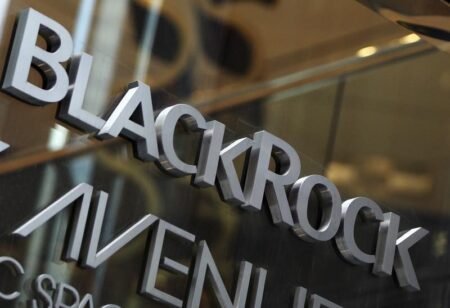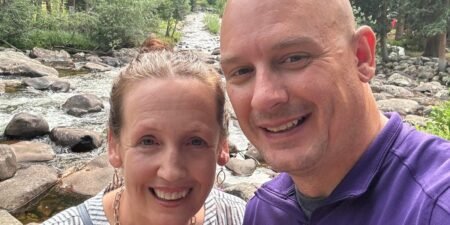Ann Miller starts her day around 6 a.m. She goes for an early walk, does laundry, and puts breakfast in a bowl for her dog, Lizzy Rocket — usually some rice and bacon scraps. Sometimes she’ll flip through a local newspaper for the week’s grocery coupons.
The 78-year-old lives on a ranch in Ellensburg, Washington, a town about 100 miles northwest of Seattle. Her small, lofted apartment sits over a hay barn. It gets a little dusty, but it feels like home, she said.
Miller lives on about $1,800 a month in Social Security income, according to documents viewed by Business Insider. She doesn’t have any savings and it can be a challenge for her to afford basic necessities: rent, groceries, and enough gas to drive her 2002 pickup truck.
Miller, who chose to use her maiden name due to privacy concerns, said her lifestyle has gone from “riches to rags.” She’s been married twice before — to a professional athlete and politician — but has been single since 2017. While Miller has a college degree and briefly worked in modeling and pharmaceuticals, her husbands were the sole income earners in her household for most of her adult life. She didn’t have robust savings of her own, and drained what she did have a few years ago to repair her truck.
Since she began receiving Social Security several years ago, Miller has been doing her best to live on a fixed income.
“I don’t go out and buy things,” she said. “When things are low, I just make do with what I have.”
Millions of older adults are retiring without the savings or assets to support themselves. The Census Bureau’s Current Population Survey found that more than half of Americans over 65 had an annual income of $30,000 or less — a figure far lower than the estimated $1.5 million it takes to comfortably retire in the US.
Some retirees have told BI that they feel financially confident due to strong corporate 401(k)s, large savings nest eggs, and well-placed investments. But others — like Miller — say they’re living check to check on Social Security or have been forced to forgo retirement to make ends meet.
Without close friends or relatives, Miller worries about what will happen when she can no longer maintain her physical independence.
“What kind of plan can I make when I have no spare money and I don’t have any living relatives?” she said. “What am I going to do?”
Miller struggles to pay bills but chooses not to apply for government assistance
Seven years ago, shortly after her second divorce, Miller moved to her barn loft on the ranch. She likes the space — she said it costs her a little over $1,000 a month — but the ranch has a new owner and she expects they will require her to move soon. Miller said the owner plans to give the loft to one of his family members. But she’s not sure she can afford to live anywhere else: The median rent in the area is over $1,700 a month.
Once Miller pays for her housing, utilities, cellphone, and credit card debt bills, she barely has enough money left over for food.
On a good month, Miller said she has $75 to spend at the grocery store. She fills her basket with a caseload of canned tomatoes, 10 bags of frozen vegetables, and five bags of frozen fish. If there are any sales or discounted items, she will buy those too. Ideally, the food will last her a full 30 days, with some ingredients left over for the hard months — the ones when she doesn’t have any money to afford meals.
Despite being on a tight budget, Miller always makes sure Lizzy Rocket has everything she needs. Nearly every grocery item Miller buys is something that’s also safe for Lizzy to eat. The French Briard rescue is “her constant companion,” and she “tries not to be lonely.”
Miller said many of her friends have faded away over the years because she couldn’t afford to travel with them or meet up at restaurants for dinner. She occasionally visits with neighbors, but she hasn’t told most people in her life about her financial situation.
At this point, Miller has decided not to apply for any forms of government assistance like SNAP or Medicaid. She said she can afford most of the healthcare she needs through Medicare, the federal health insurance that’s typically attached to Social Security. There’s also a lot of stigma attached to getting help, she said.
Miller feels uncertain about her future, but she does find comfort in her routine. She knows Lizzy Rocket will wake her up just after 6 a.m. tomorrow morning. They will go on a walk around the ranch, then Miller will tidy her loft and sit down to read the newspaper or write her budget for the week.
“I’ve tried not to go backward,” she said. “I just figure this is a new adventure.”
Are you living on a fixed Social Security income? How have you made the decision to enroll in Social Security early or late? If so, reach out to this reporter at allisonkelly@businessinsider.com.
Read the full article here

















